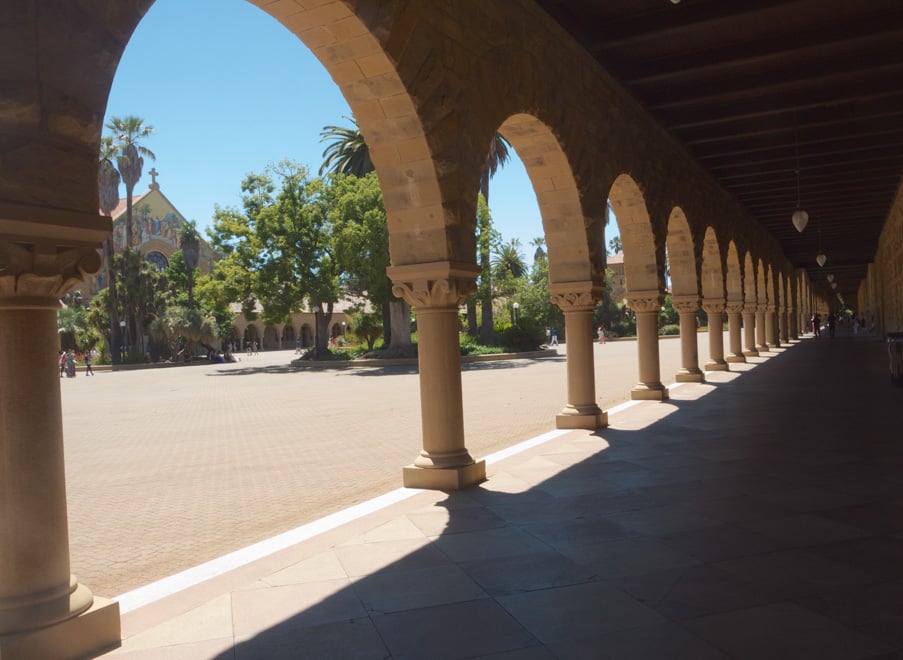Stanford suspended a student for two quarters after finding that he sexually assaulted Sinead Talley ‘16 in 2014, The San Francisco Chronicle reported last week.
“Providing my rapist with a gracious invitation back to Stanford pending a brief period of ‘reflection’ disrespects myself and the moral stature of Stanford as an institution,” Talley wrote in an unsuccessful appeal for Stanford to expel her assaulter.
Talley reported the assault in 2016 and the University formed an independent panel to review the case. The panel was tasked with reviewing evidence and providing a ruling based on a preponderance of the evidence — or “more-likely-than-not” — standard.
U.S. Courts need to find defendants guilty beyond a reasonable doubt to convict, but the Stanford panel only needed to pass above a 50 percent certainty threshold to award punishment. The lower standard of proof comes from a 2011 Federal guideline governing how universities respond to cases of sexual assault.
The panel found that Talley’s intoxicated state during the encounter prevented her from giving consent. As part of his defense, the male assailant wrote that he was intoxicated as well, and “had no idea that she was in a blackout … I thought I was having consensual sex.”
The panel ruled that a sober individual would have known Talley wasn’t capable of giving consent. Talley told The Chronicle that Stanford’s two-quarter suspension of her perpetrator was “criminal.”
Provost Persis Drell responded to the article in a Notes From the Quad blog post. She noted that the University followed standard protocol for the case. An independent panel was assembled that weighed the evidence and gave a decision, according to Drell. Drell also referenced a report from the Department of Education’s Office of Civil Rights (OCR) upholding the University’s decision.
“OCR reviewed the allegations, including the level of sanction imposed on the responding student,” Drell wrote. “OCR declined to open an investigation and determined that Stanford had complied with Title IX in handling the case.”
Talley’s assailant ultimately did not return to the University.
Both The Chronicle article and Drell’s blog referenced the overarching issue of sexual assault at Stanford. The Chronicle conveyed Talley’s sentiment that Stanford is “protecting students who commit sexual assault by downplaying the severity of their behavior and rarely expelling them.”
Stanford received 84 reports of rape — which, per Clery Act protocol, it passed on to the federal government — on its campus from 2014 to 2016.
These 84 reports were allegations, Drell clarified, not findings of responsibility. The University was unable to proceed in some of the cases due to insufficient information about the crime in question, such as the alleged assailant’s identity. Still, none of these instances resulted in an expulsion, though three students found guilty of sexual assault unenrolled voluntarily, according to University spokesperson E.J. Miranda.
Drell noted that the 84 alleged rapes occured not only on the undergraduate campus but also at the Stanford hospitals, Stanford Linear Accelerator and the “900-home faculty residential neighborhood.” Reports from non-students, those who did not press further charges and incidents where not enough information is available to hand out a disciplinary ruling are all included in the total.
The Chronicle characterizes Stanford’s broader treatment of sexual assault by detailing a recent case, separate from Talley’s, that met the University’s bar for expulsion but resulted in a lesser punishment. A sexual assault in which the assaulter uses force, incapacitates the victim or knows the victim is impaired are all grounds for expulsion. An incident in the 2016-17 school year fit this description, but the deciding panel handed down a three-quarter suspension instead.
The Talley case did not meet the bar for expulsion because the defendant claimed he did not know Talley was incapacitated, due to his own intoxication. In the denial of Talley’s appeal to expel her assailant, the panel wrote that it had “reasonably concluded that [the defendant] neither induced nor knowingly took advantage of an incapacitated person.” The two-quarter suspension stemmed from the panel “believ[ing] a reasonable, sober person would have recognized [Talley’s] incapacitation, her inability to understand the nature of the sexual situation, and thus her inability to give consent.”
“We seek to carefully weigh the facts and treat all parties fairly through our adjudication process, including the investigation and imposed sanctions,” University spokesperson E.J. Miranda told The Chronicle. “We do not tolerate sexual assault at Stanford.”
“Talley said her experience shows that Stanford does tolerate sexual assault,” The Chronicle wrote. Michele Dauber, the Stanford Law School professor behind the successful recall of then-judge Aaron Persky ’84, M.A. ’85 over his Brock Turner sentencing, is quoted calling Stanford’s sexual assault punishments “laughably lenient.”
This article has been updated with additional information about the 84 Clery Act reports filed between 2014 and 2016.
Contact Nicholas Midler at midler ‘at’ stanford.edu.
